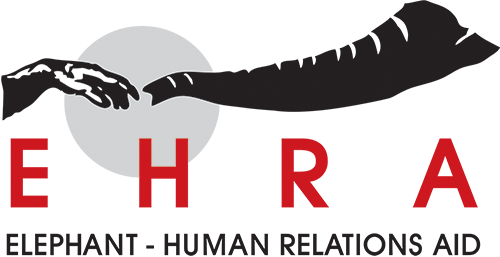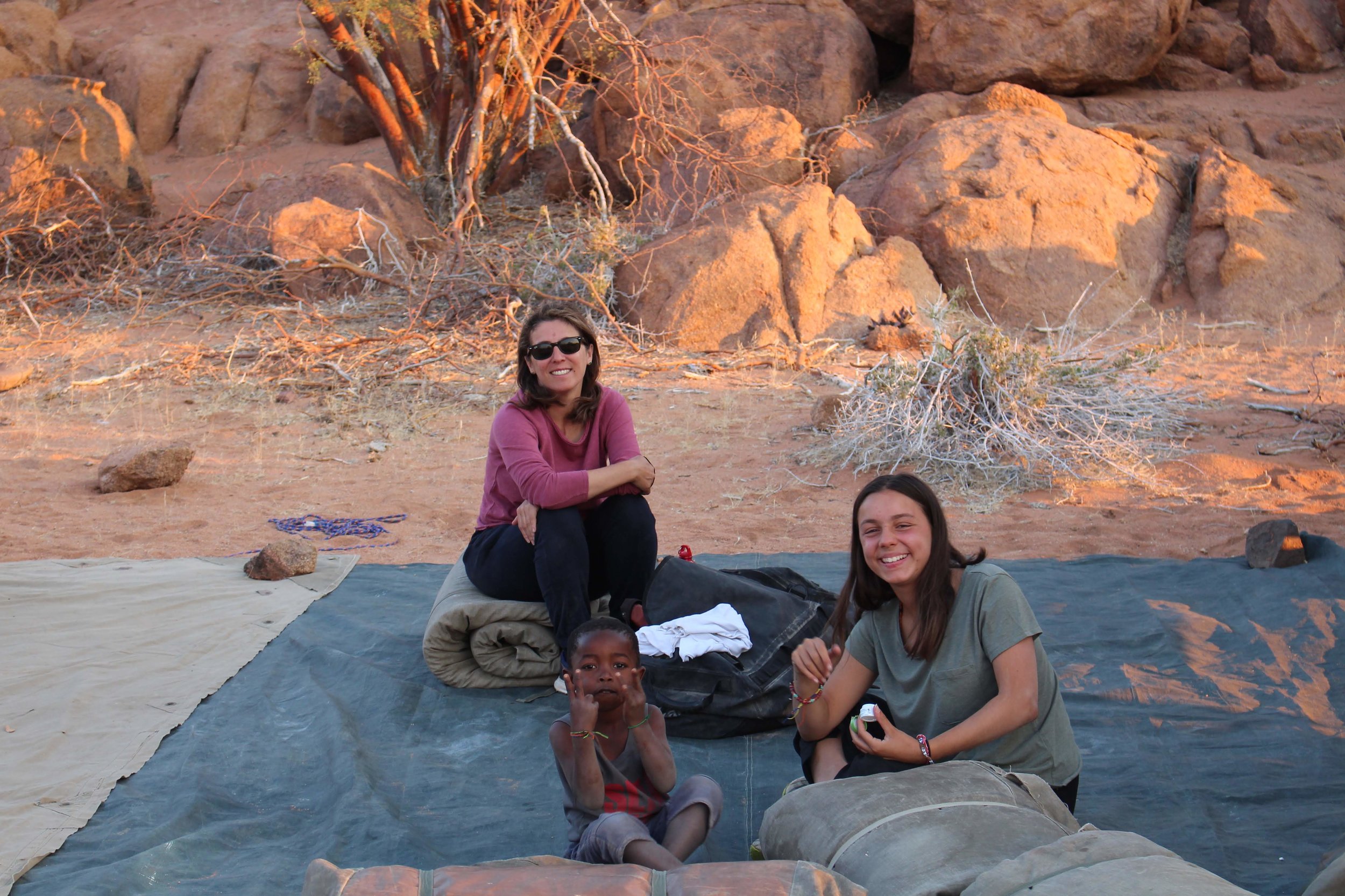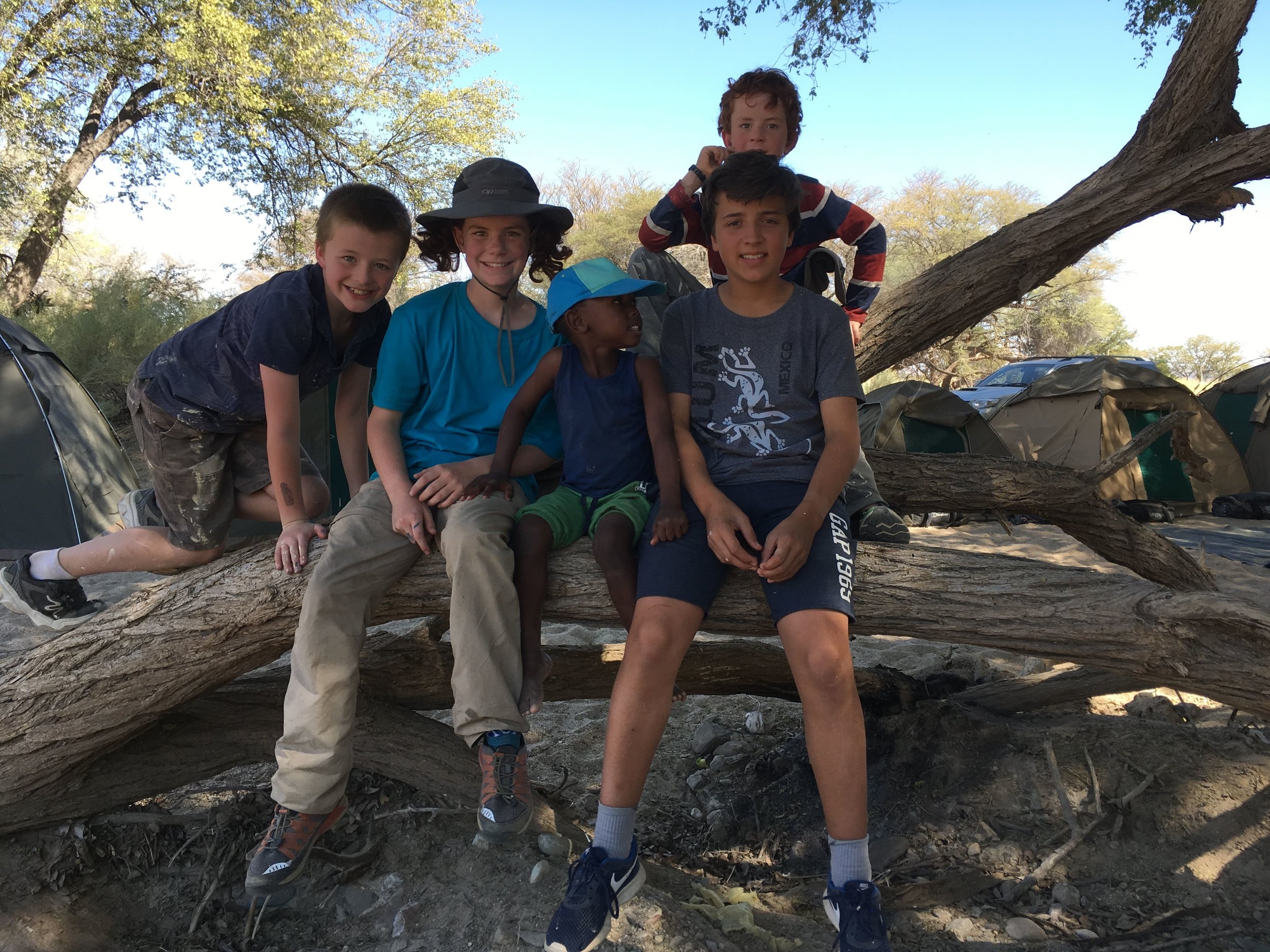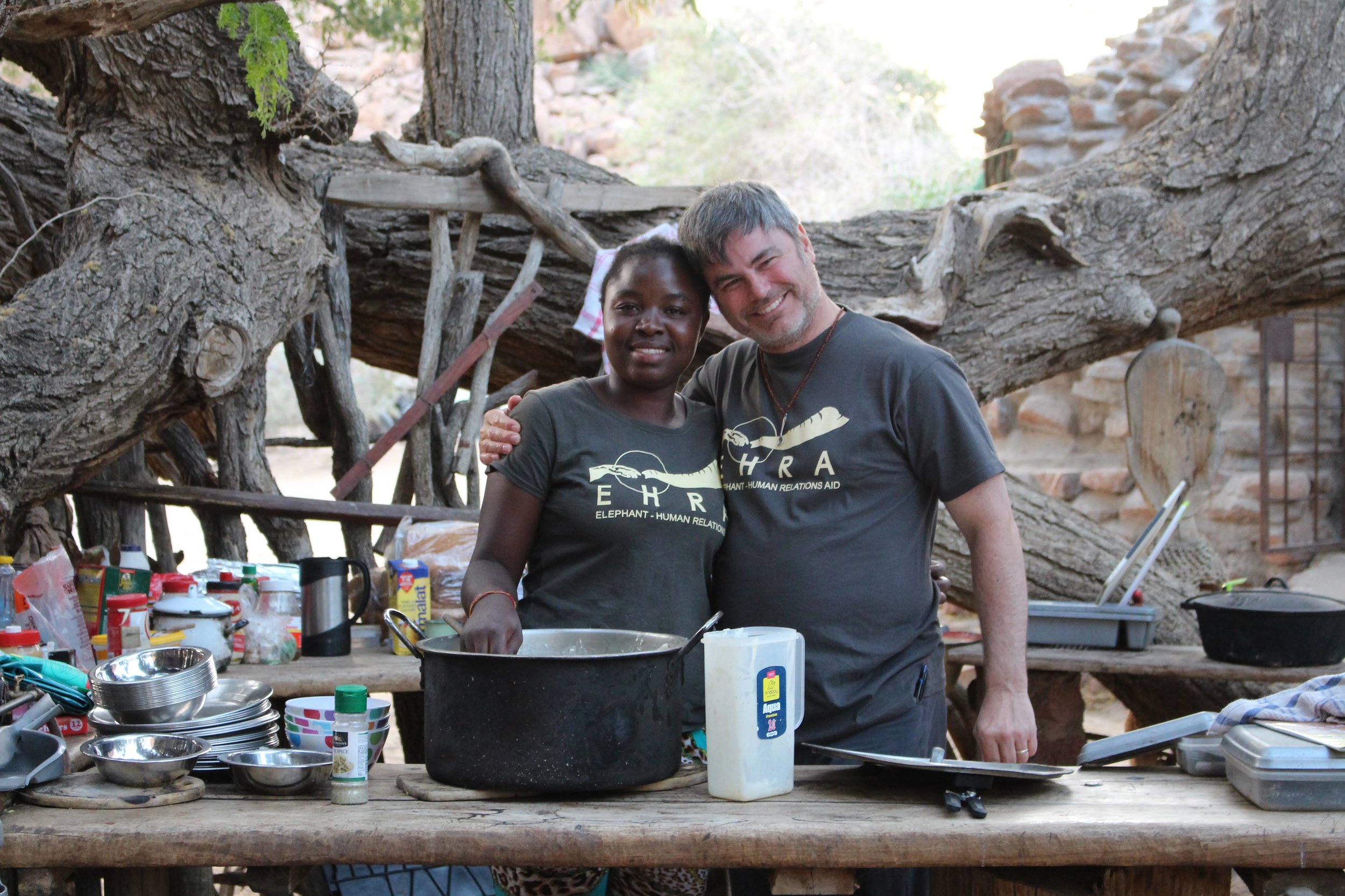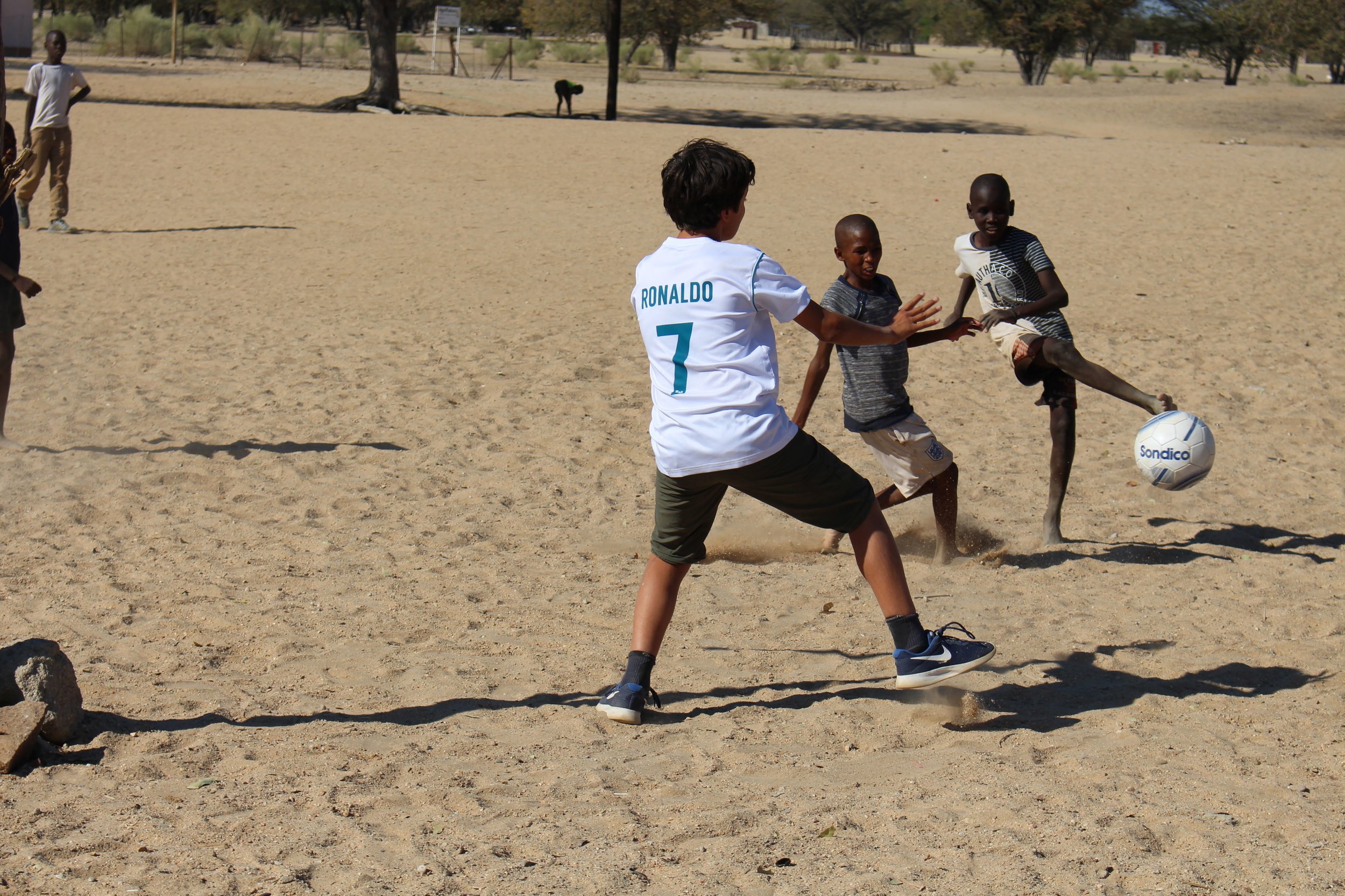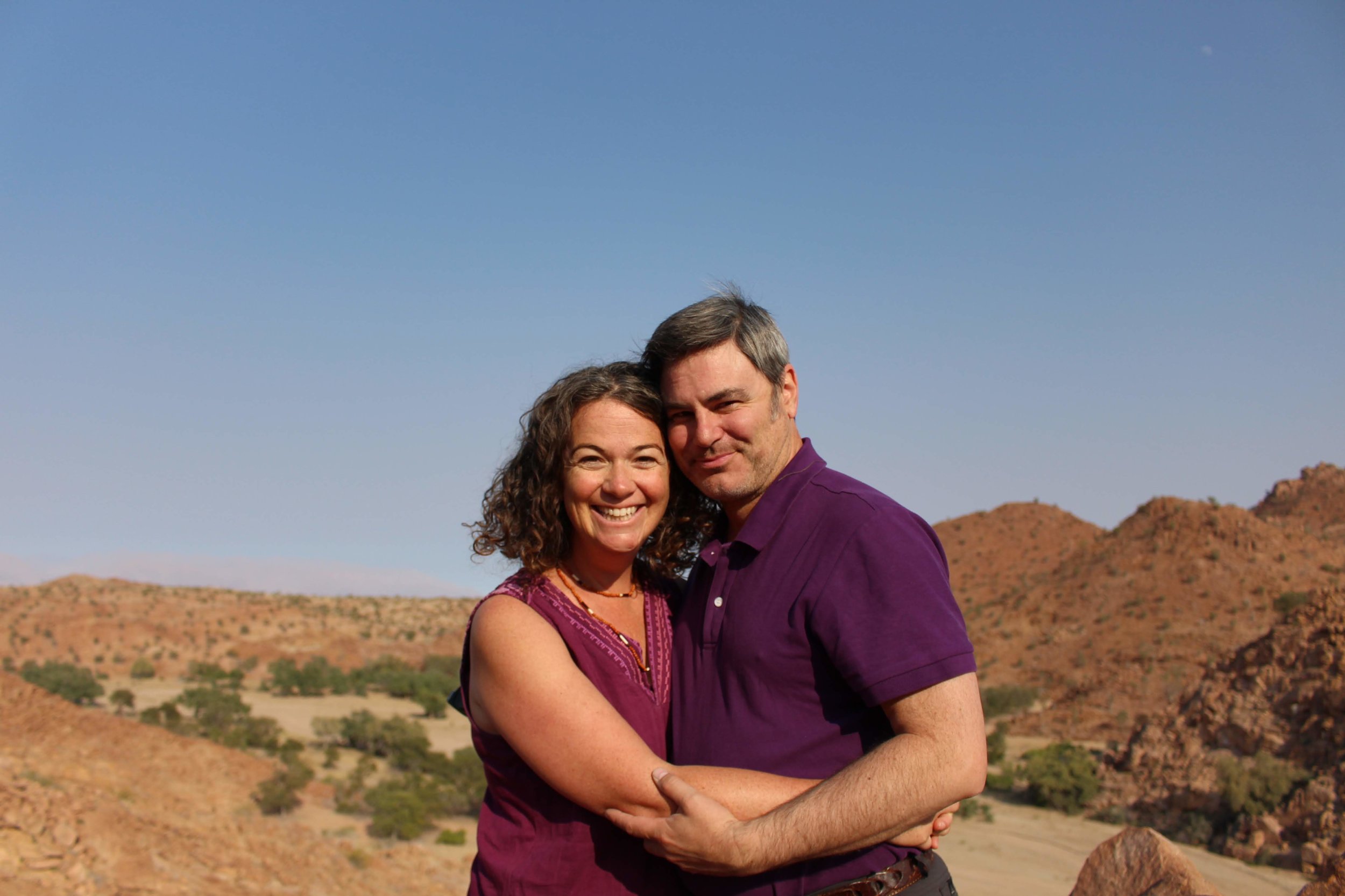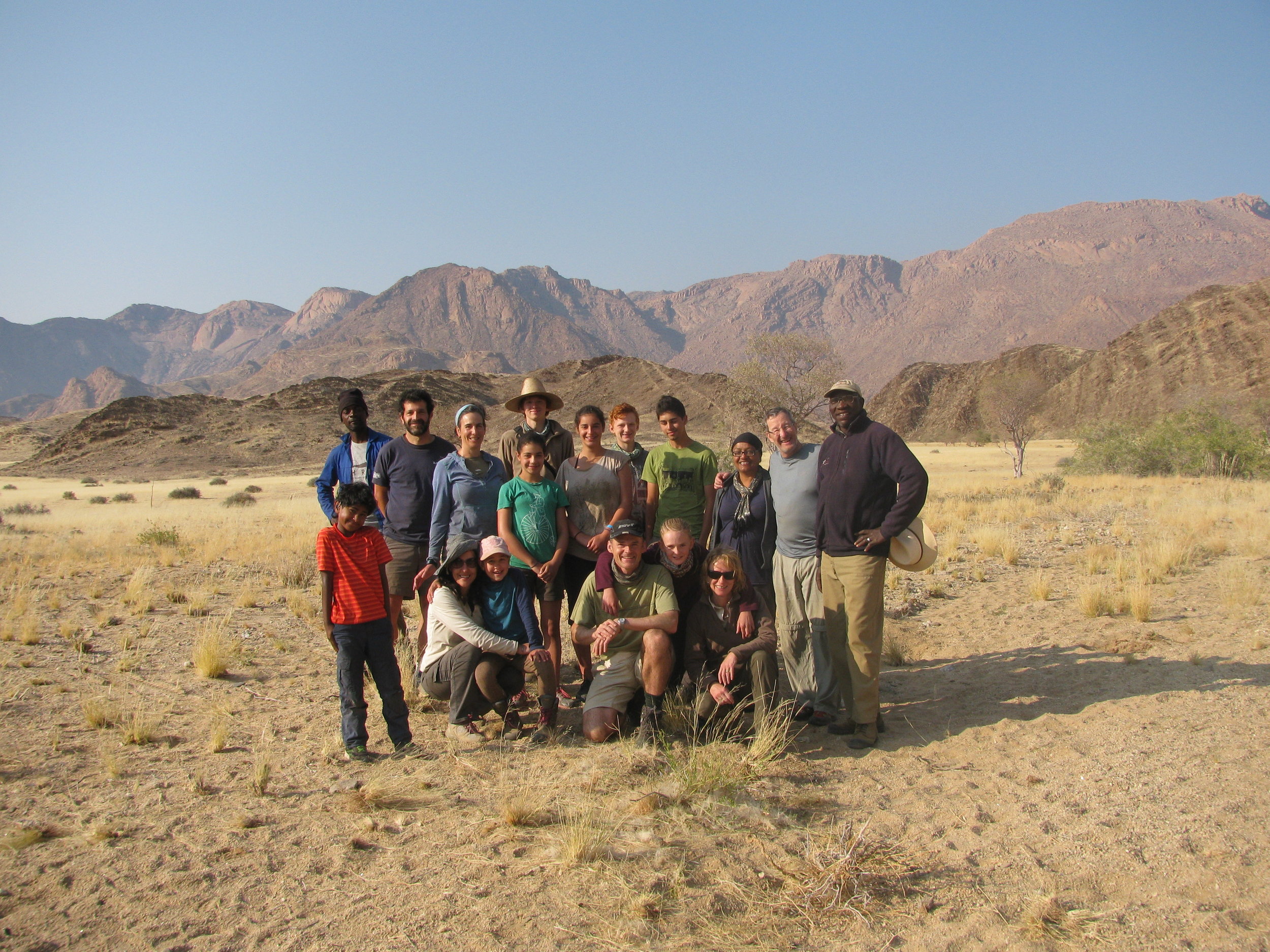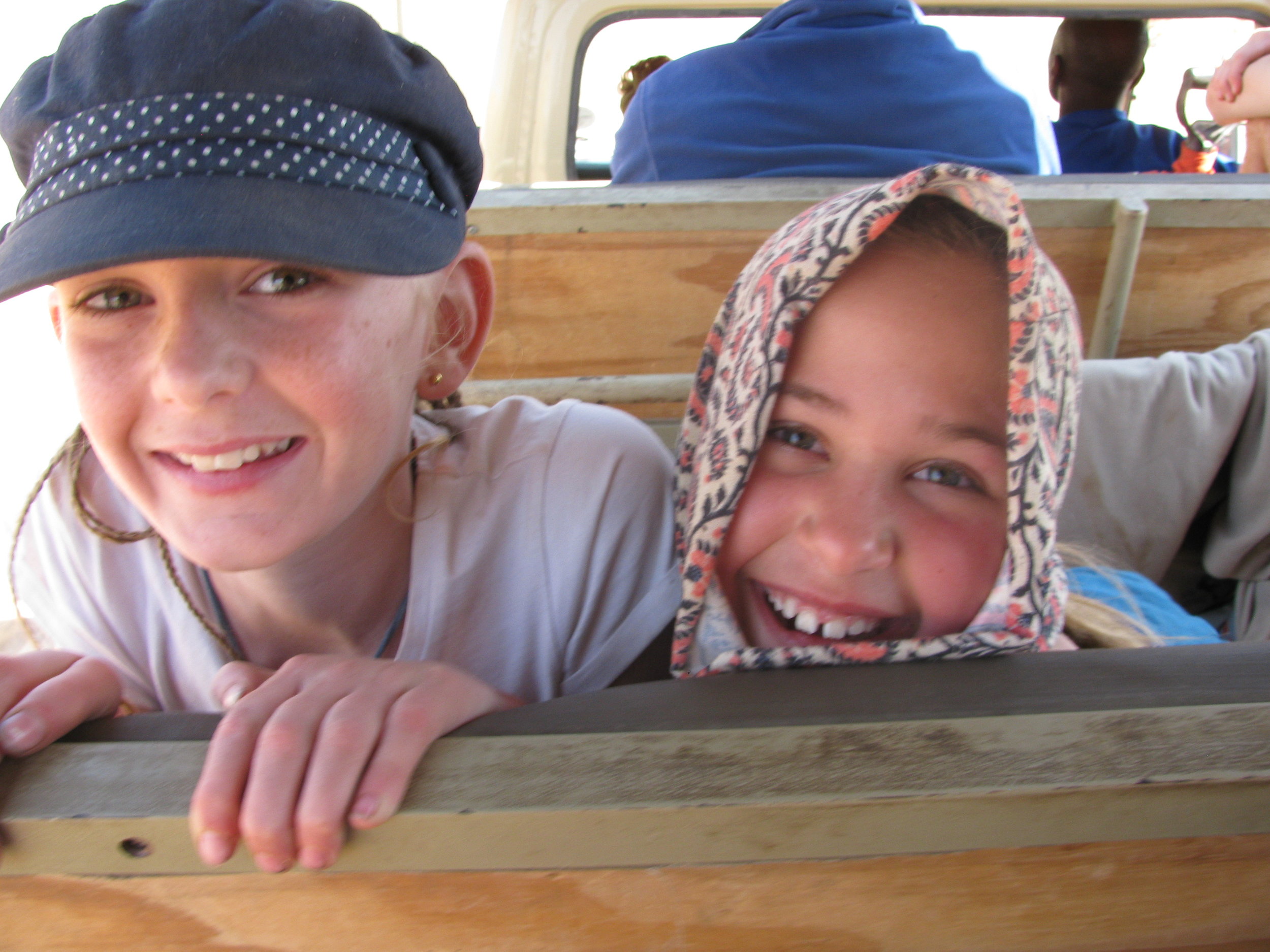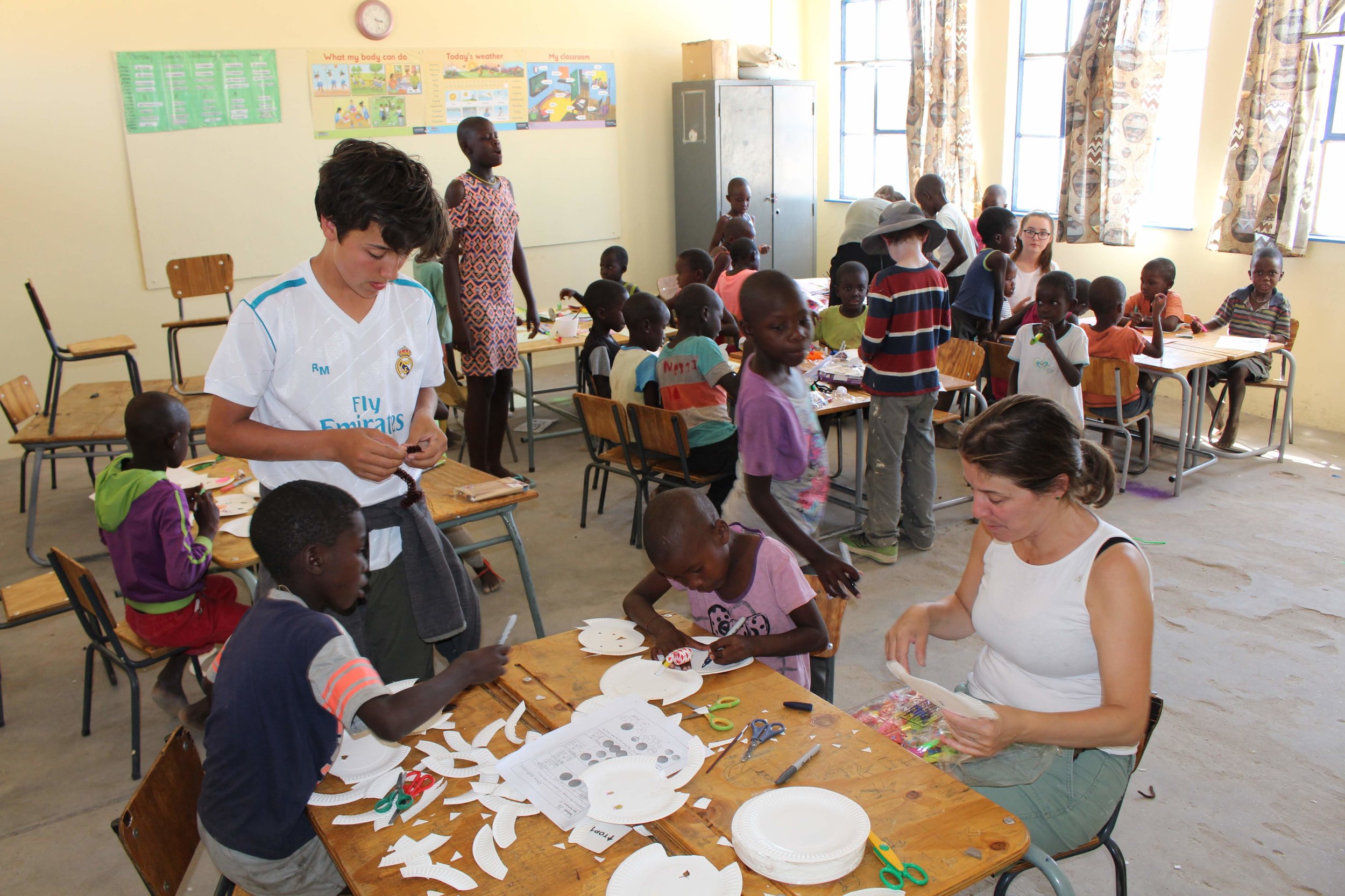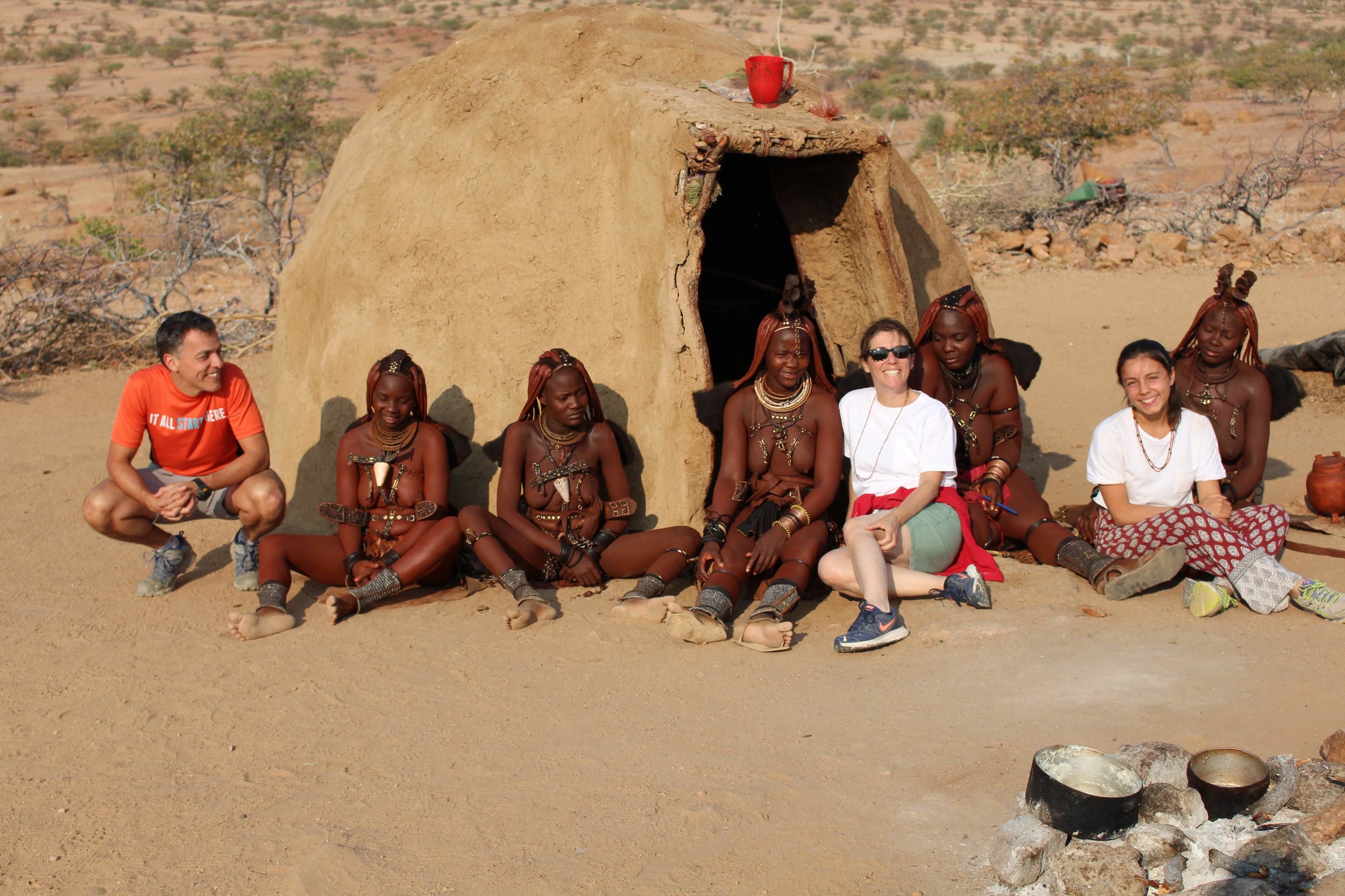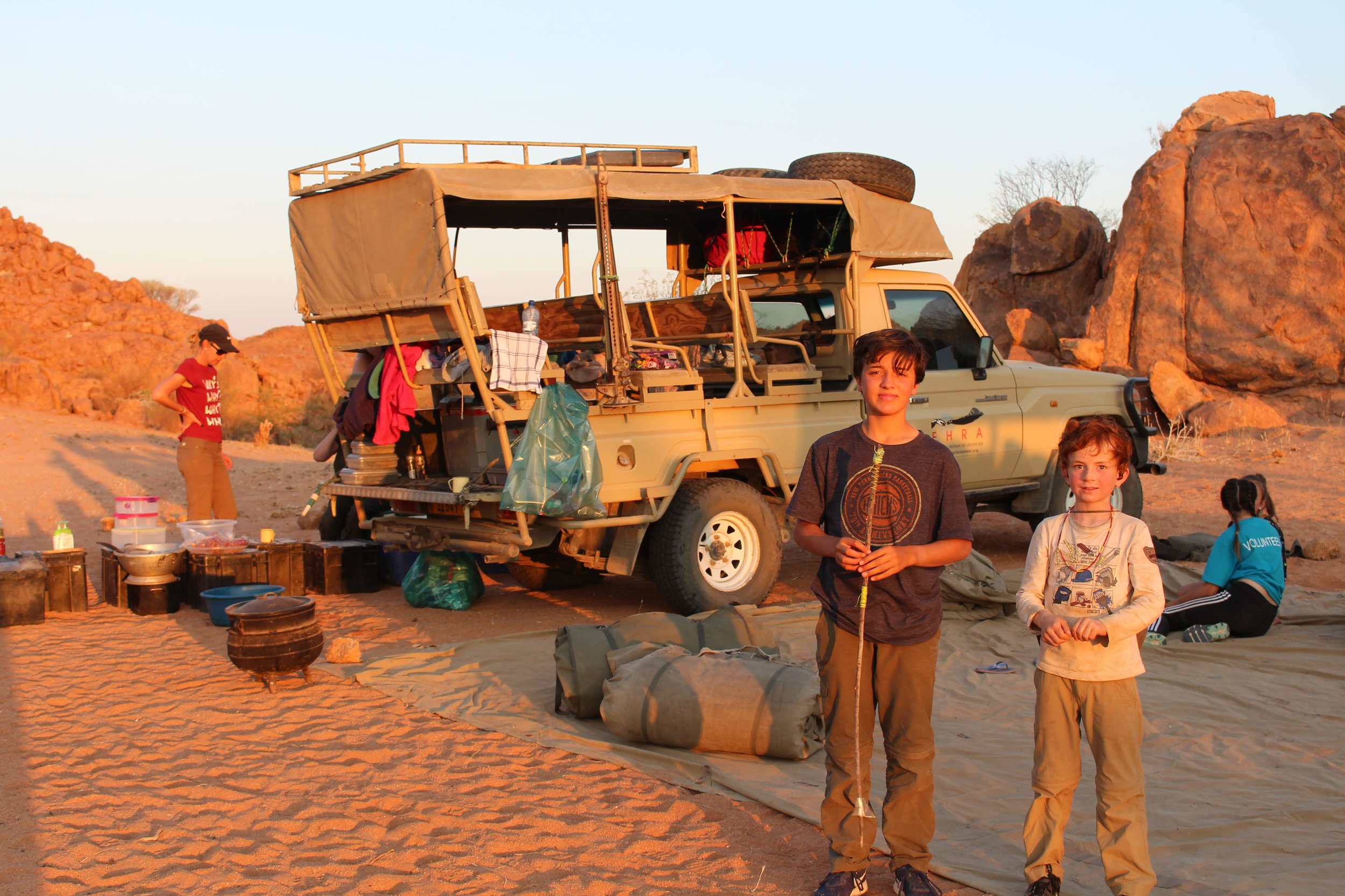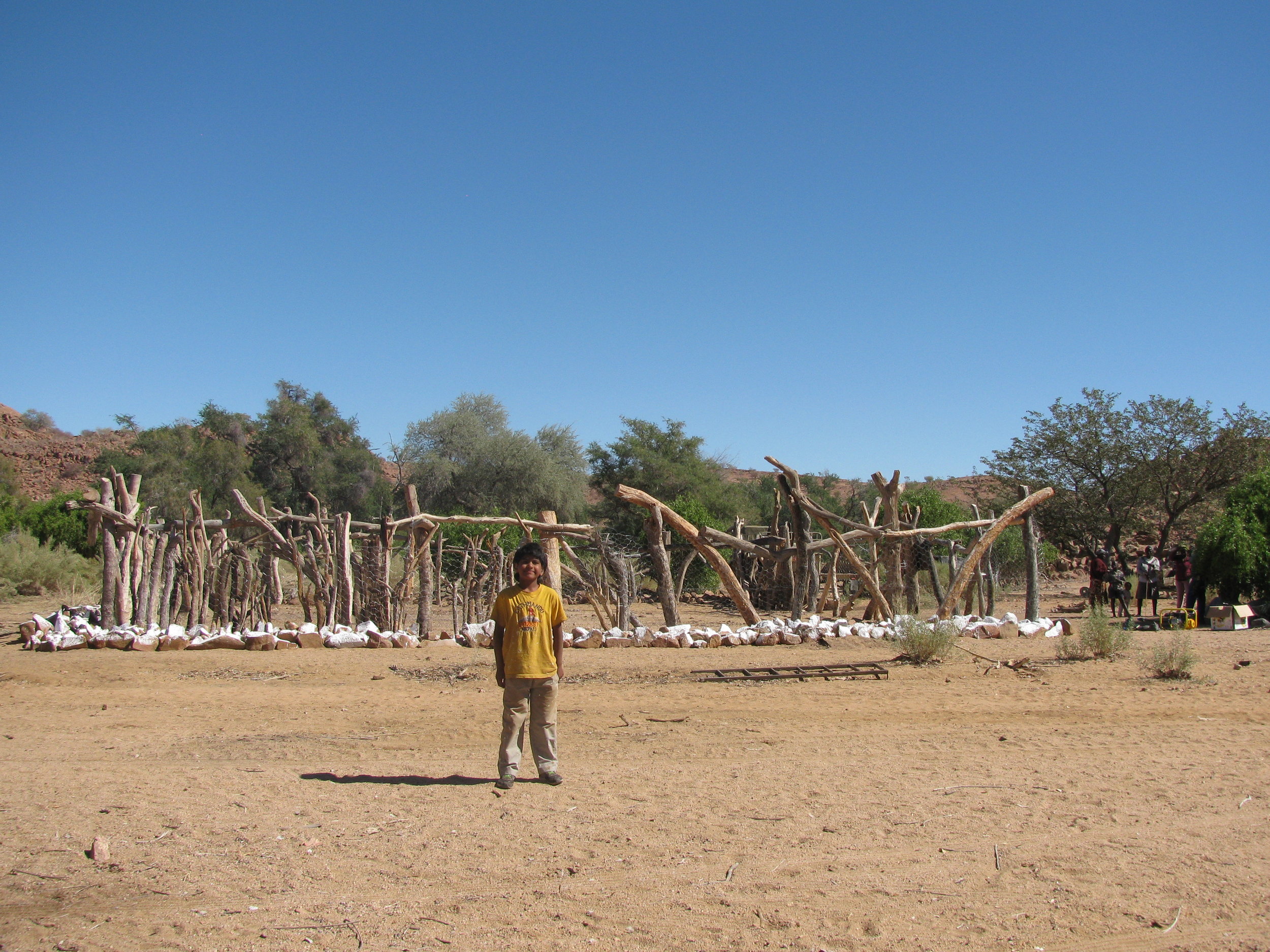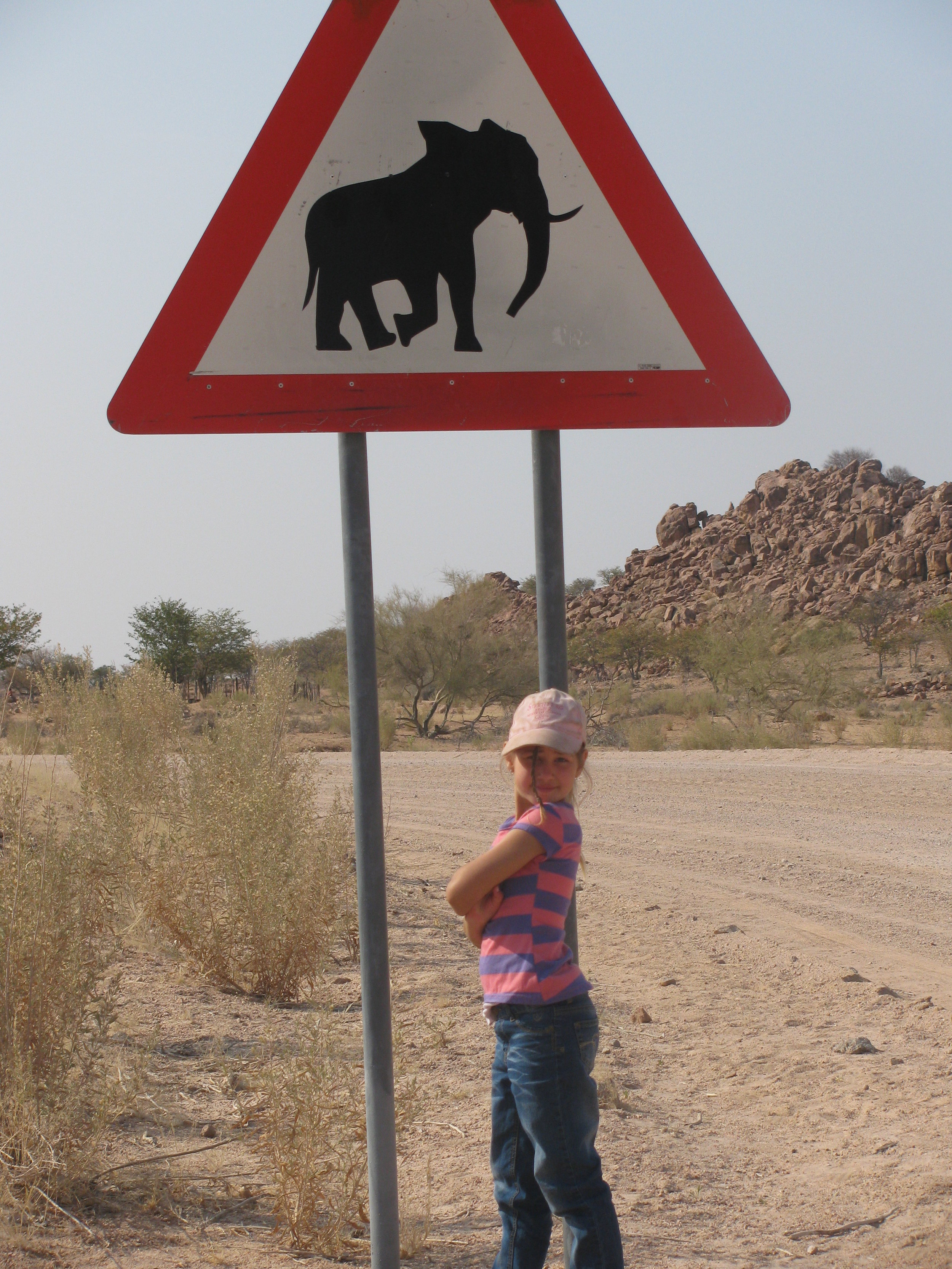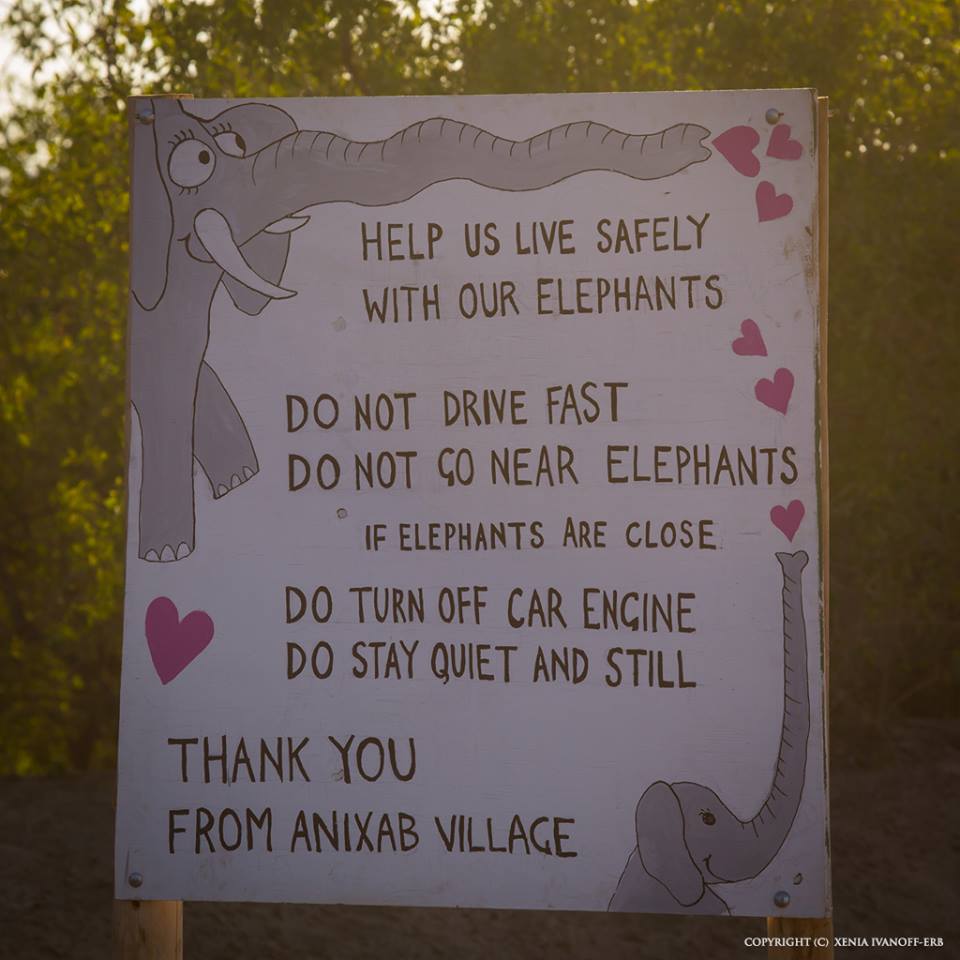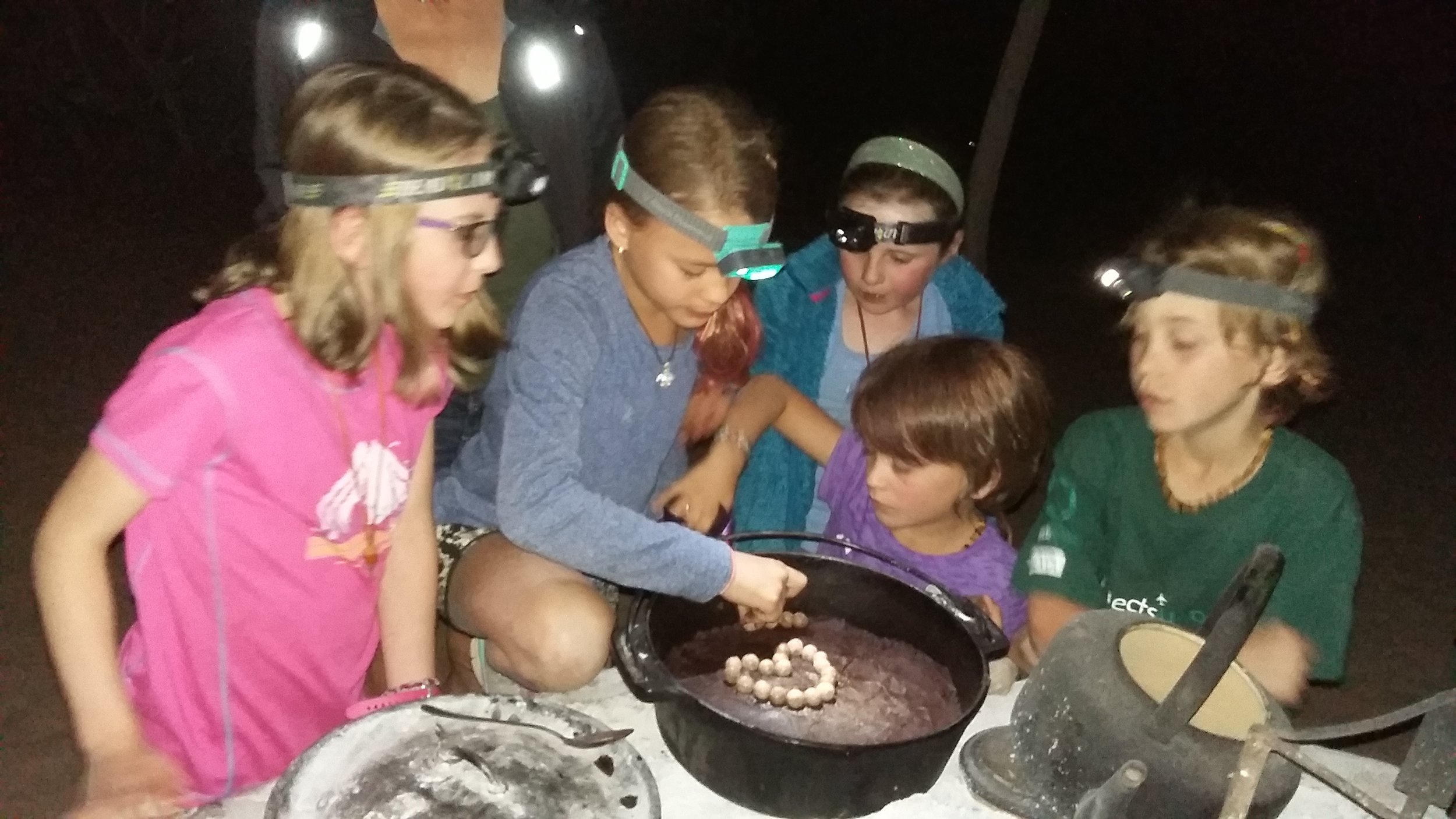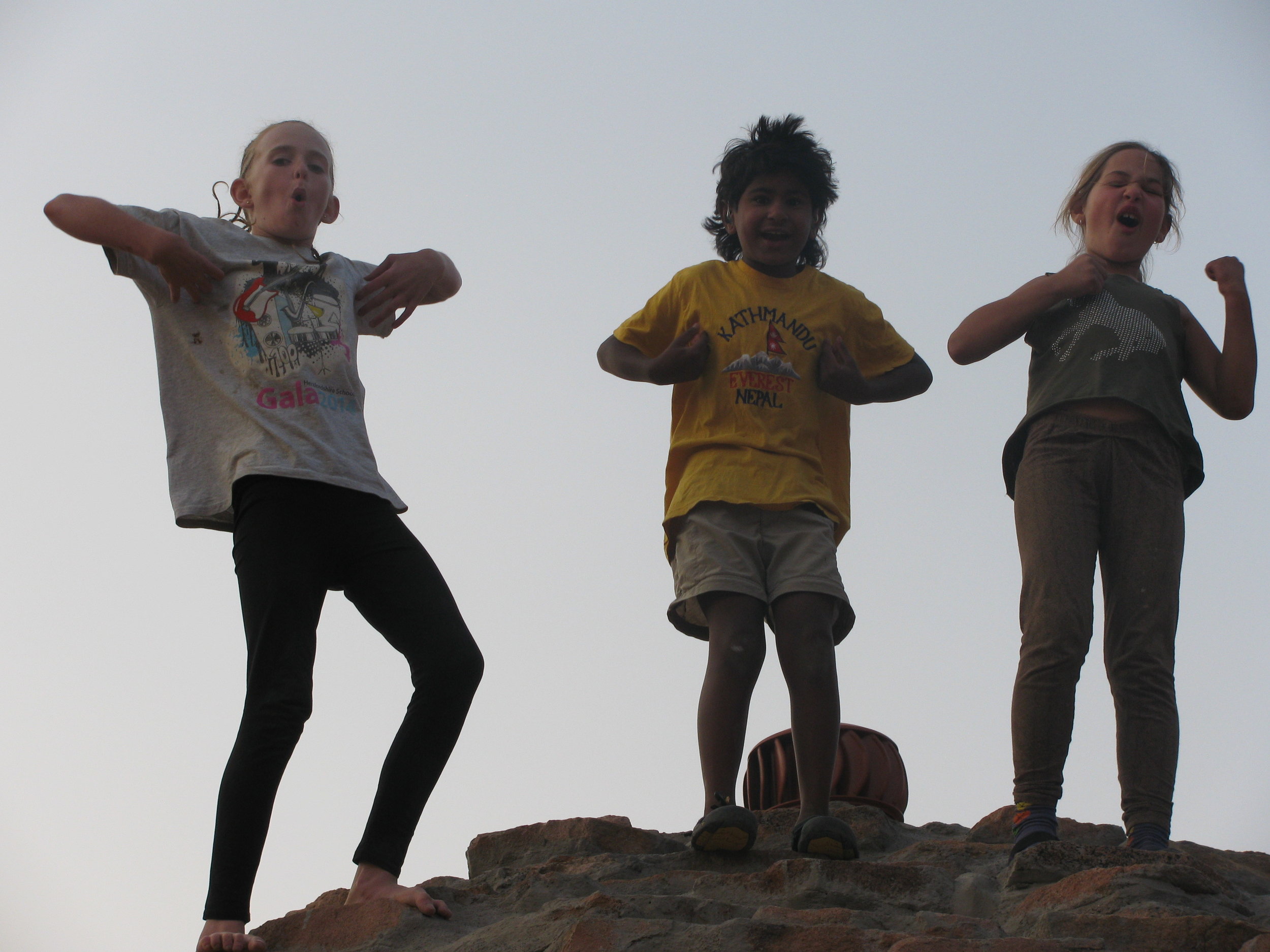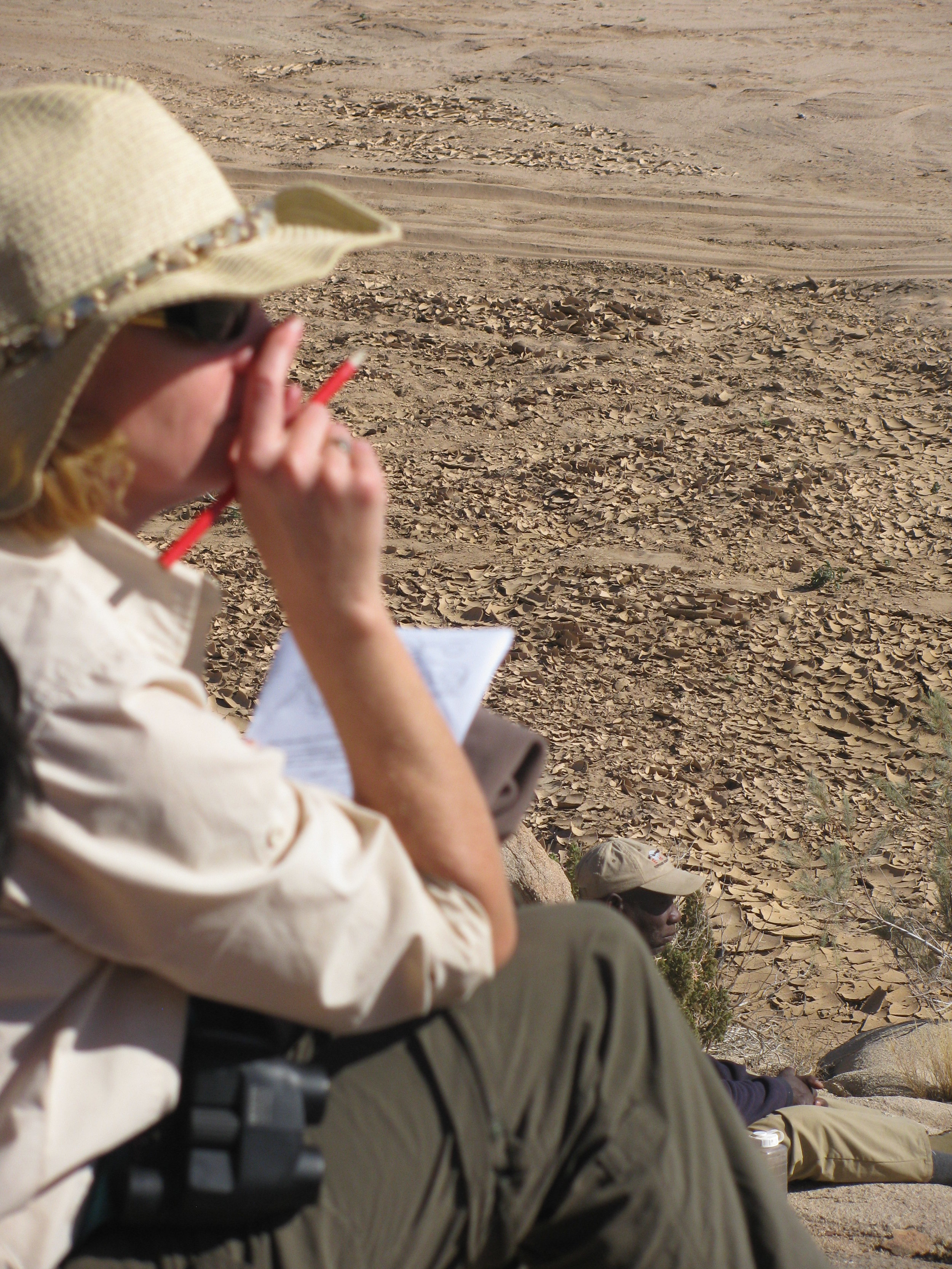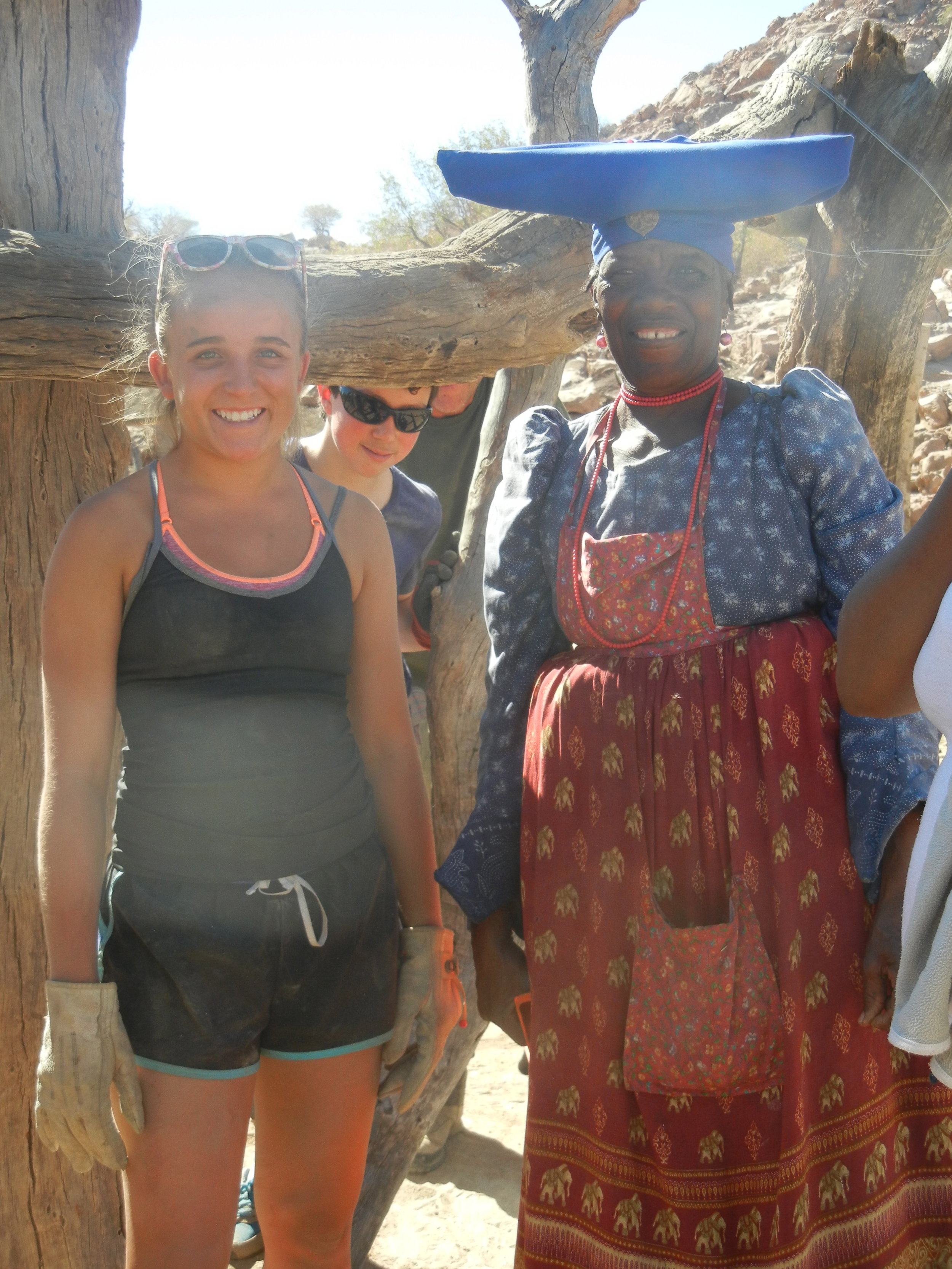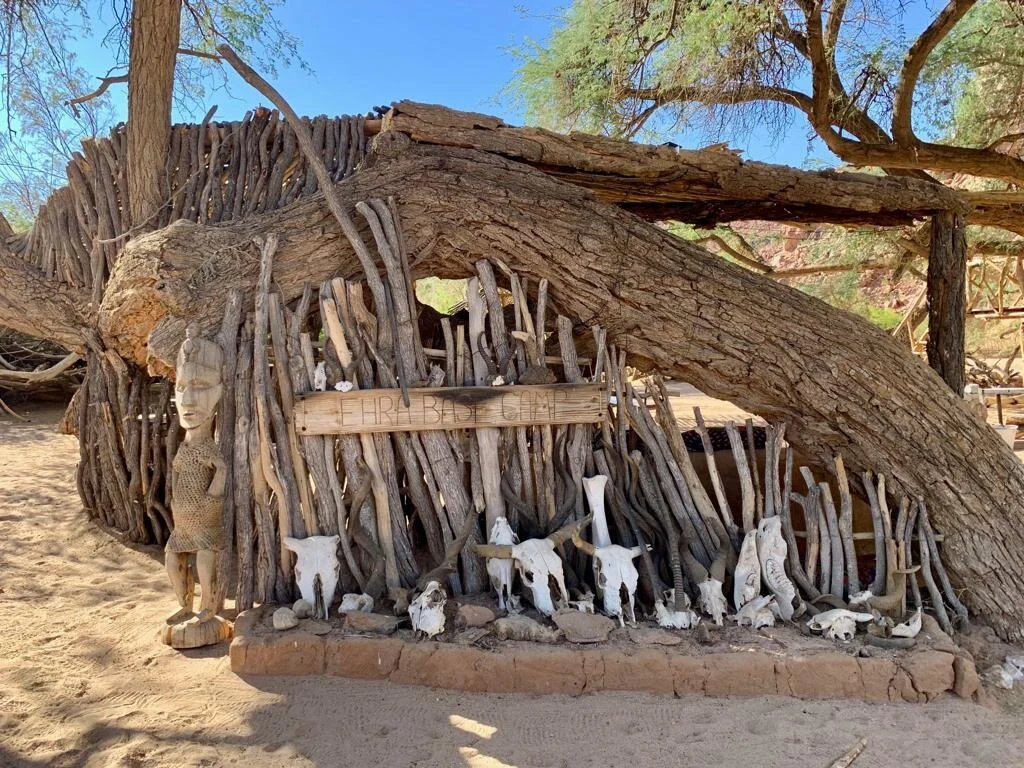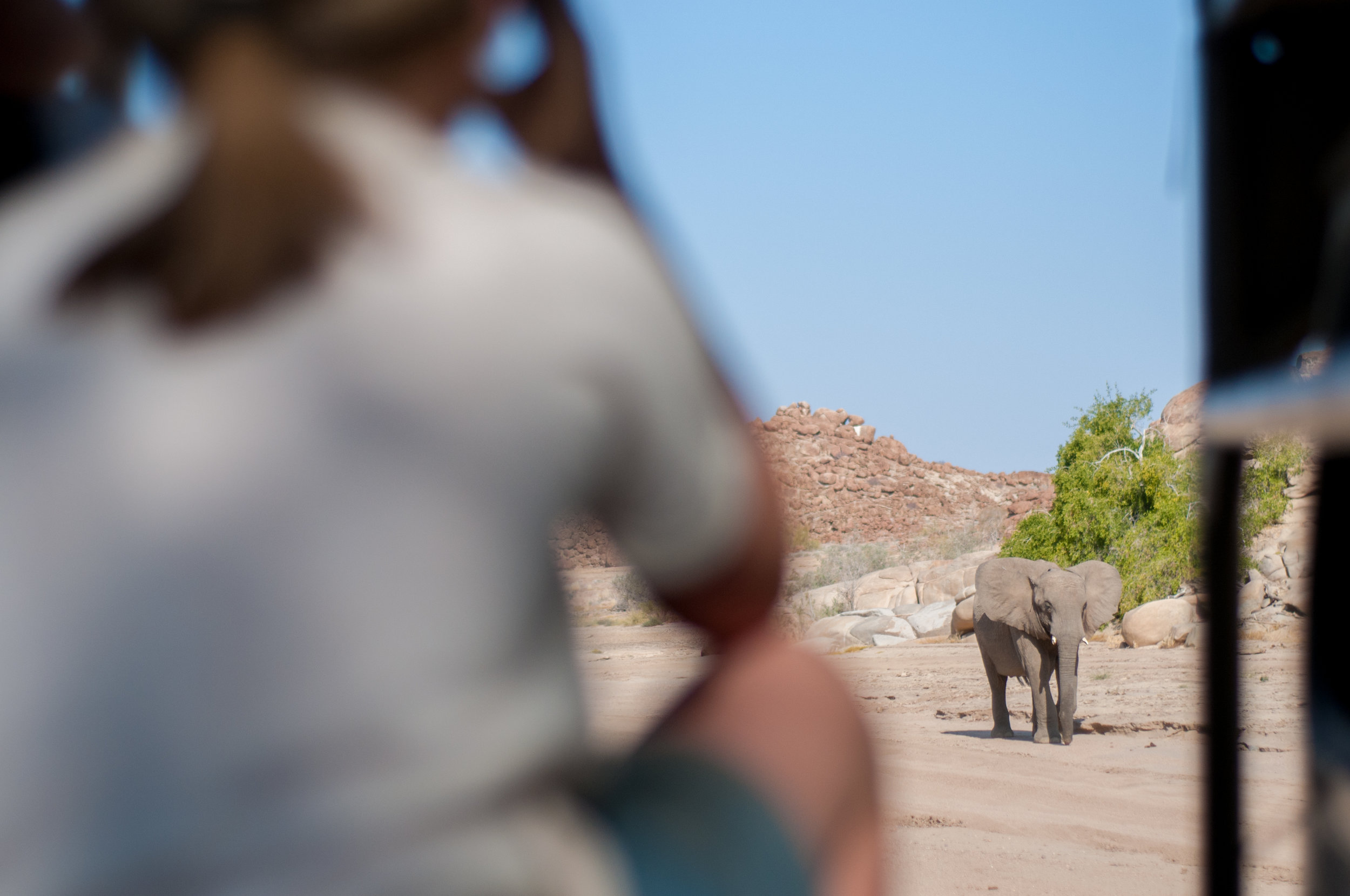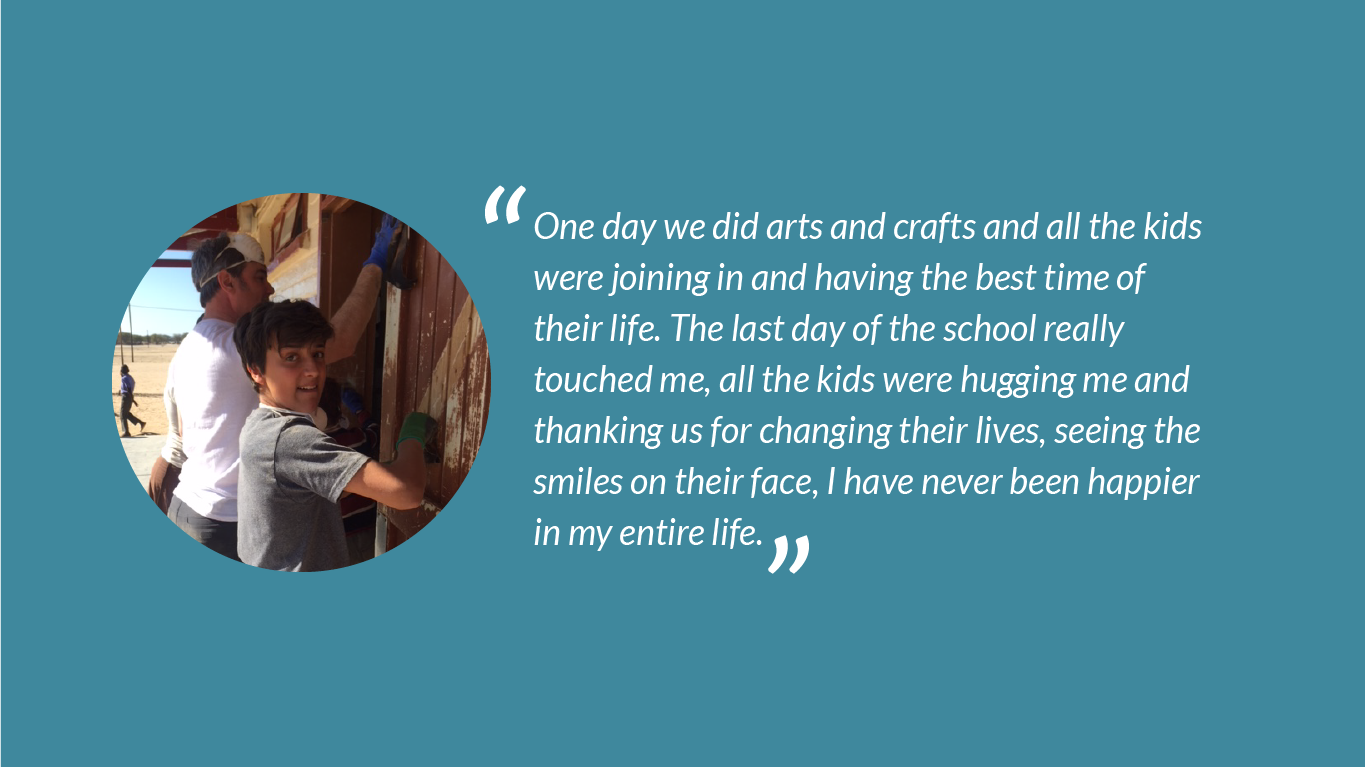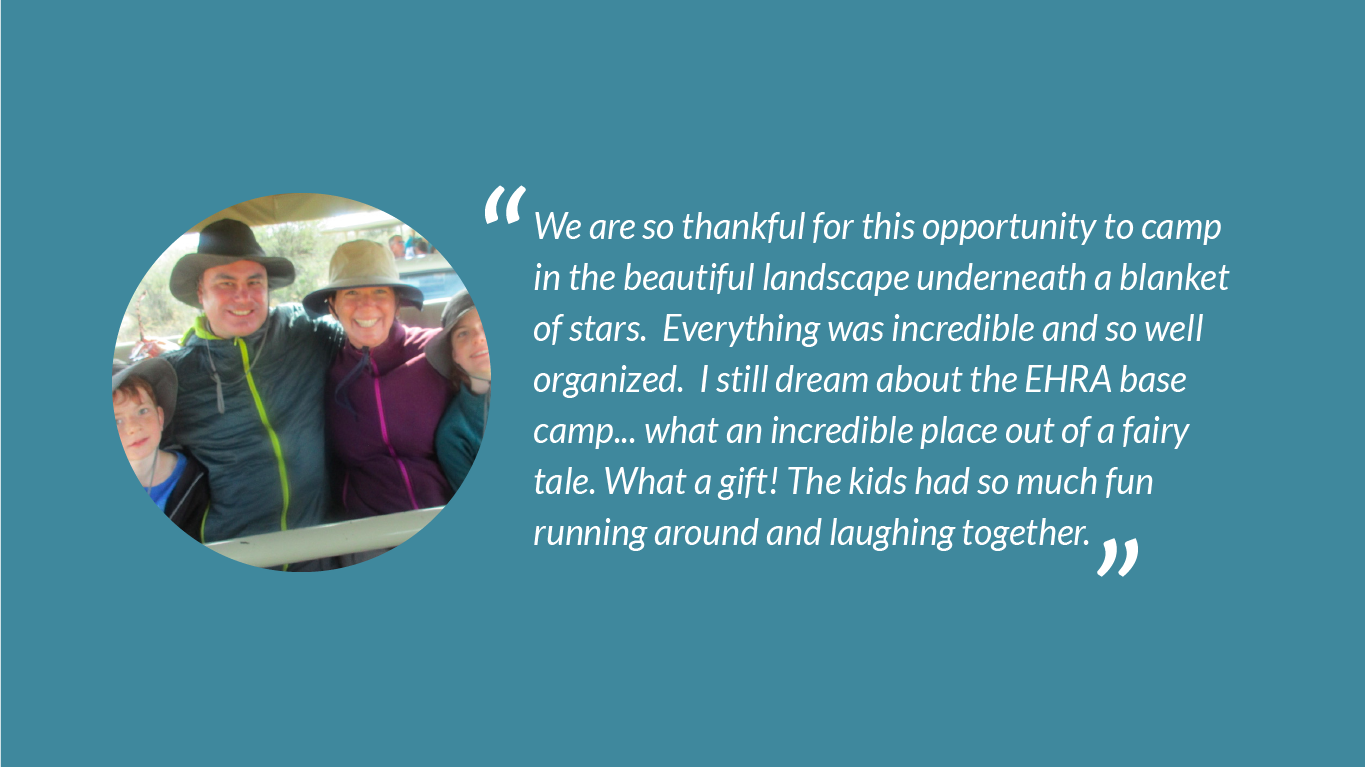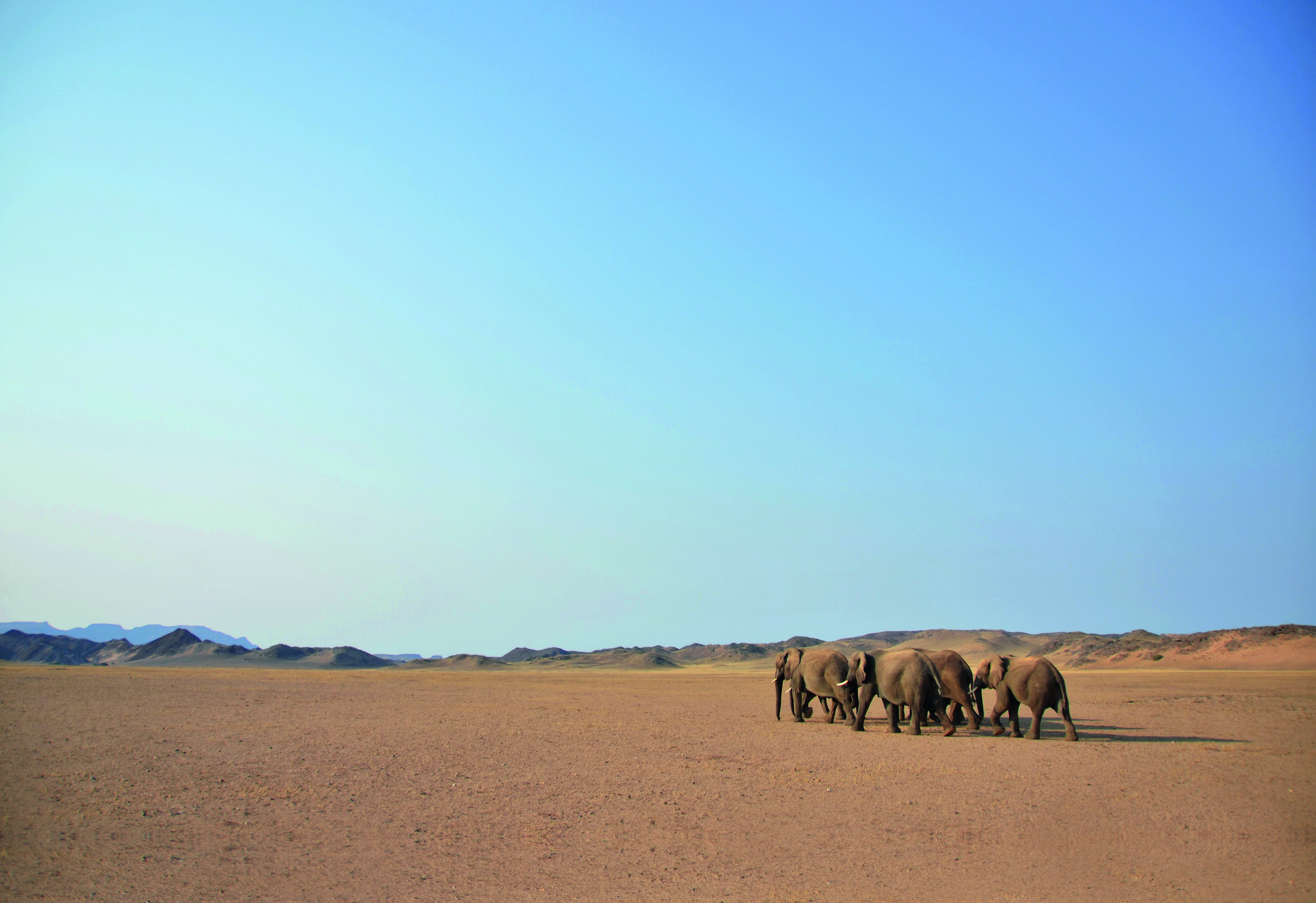+ Day 1 - Swakopmund to Base Camp
Everyone will leave around lunchtime and drive to camp, which is approximately 4 hours away. We will get unpacked and settle in on the banks of an ephemeral river a short walk away from Okongue Primary School, where the family groups will be working for the next few days. In the evening Hendrick will give a briefing about the week ahead and how to stay safe out in the bush.
+ Day 2 & 3 - Build Project
The build project starts. Early in the morning we will get to the school and participate in the morning’s assembly and meet the teachers and pupils of Okongue School. The project involves the repainting of dormitories or classrooms. Throughout the time at the school there will be a chance to participate in lessons and interact with the pupils after school hours during sports activities and EHRA art and craft sessions.
We will get organised and start the project work after assembly. Then, during the mid-day heat, we take a long lunch break back at our camp. Work starts again around 2pm until 4.30pm.
EHRA’s involvement with the school provides an opportunity to try and promote the elephants in a positive light. The fact that EHRA has assisted in the school’s development and renovation work over the past 14 years encourages the community and pupils to engage with us and see that the drive to conserve elephants is a benefit to them.
+ Day 4 - Base Camp
Today is the last day of the school project. We will then head back to EHRA base camp to unwind after a job well done!
+ Day 5 - Explore Base Camp
The group can relax and explore the area surrounding base camp. In the afternoon, there is an option to go on a nature walk (+- 3kms) with Hendrick. This is an opportunity to learn about different survival skills and edible plants from the desert.
Today’s challenge is to
make a chocolate cake
– cooked on the fire!
In the evening Hendrick will give the group a briefing on patrol, covering the aim of the next few days including the elephants we need to track and specific information on safety whilst in close proximity to elephants.
The aim of each patrol can vary, at the time of writing our focus is twofold; one is to have a presence in the area where elephants are under threat and check that all herds are together and without injuries, and secondly, we need to start compiling identification files of ‘new’ herds of elephants in the northern reaches of the area, as these elephants are causing a lot of damage to farms. On each patrol we also spend time speaking and interacting with local farmers and community people.
+ Day 6-8 - Elephant Patrol
We pack the patrol vehicles and head out early in search of the elephants.
Throughout the week you can expect to see other wildlife. Whilst the black rhino is rare, there is a small population in the area which are often spotted as well as springbok, oryx, kudu, giraffe and zebra.
Nights are spent sleeping under the stars - an incredible experience for all! On each day of patrol we will include some walking so that the children don’t get bored sitting in the cars for the whole day. If we manage to head down into the wetland areas of the river system we may even have a fishing competition!
Hendrick will explain how to track the elephants and the group will have the chance to put their tracking skills to the test.
+ Day 9 - Base Camp
Today is the last day of patrol. Around lunch time the group will head back to EHRA base camp, for a refreshing shower among the rocks and enjoy a last night around the fire before going to sleep in the tree house!
+ Day 10 - Return to Swakopmund
After a leisurely breakfast we will pack up the Toyota Quantum and head back towards the coastal town of Swakopmund, along the Skeleton Coast. We aim to be back around lunch time. We can help with bookings for various activities in and around Swakopmund. There is lots of fun to be had by everyone including sandboarding, quad biking, desert tours, dolphin cruises and kayaking, to name a few!
